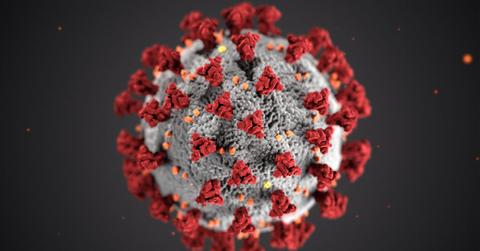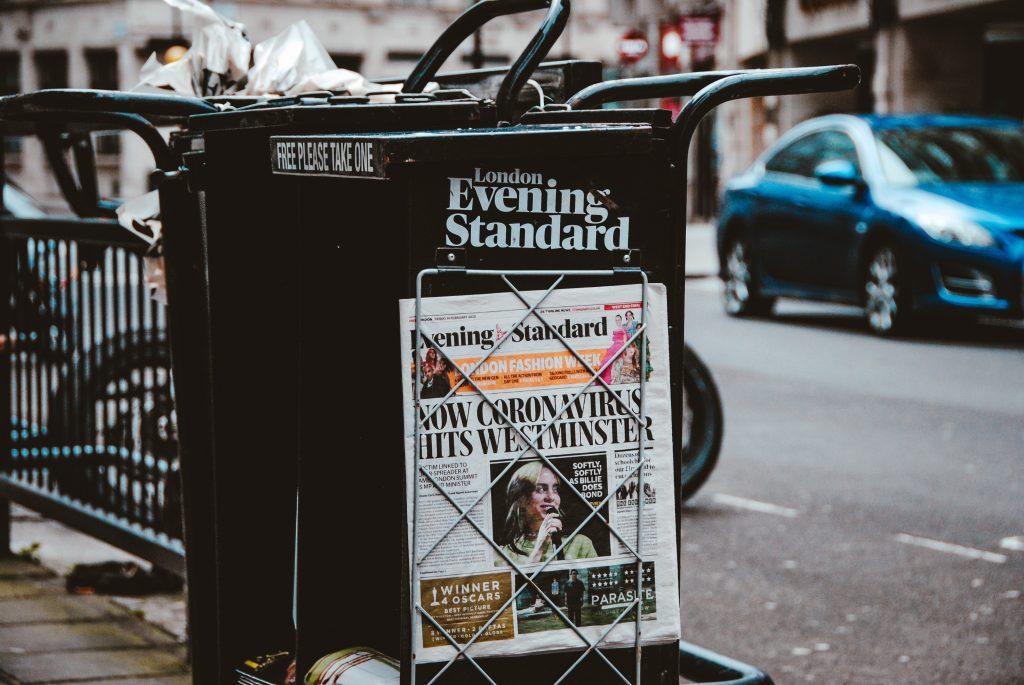5 Ways To Neutralize The Noise Around The Coronavirus

We all know the coronavirus is bad for your health. But grim statistics and scary projections aside, there’s another risk to be aware of besides exposure to the virus. Specifically, I’m referring to the dangers of tracking too many updates on the subject. And that’s not hard to do, considering the near-constant news coverage and social media chatter around infection rates, death tolls, travel restrictions, stock market swings, and ominous predictions on how dire the pandemic may get.
Don’t get me wrong. I’m fully aware the coronavirus poses a serious threat. It’s just that I believe we shouldn’t let it consume our waking lives.
We’ve moved beyond information and are now generating a swell of noise. The messaging around the coronavirus is amplified to deafening levels. People are consuming hysteria, and it’s not doing us any favors.
“Noise” is the name for the dizzying onslaught of information from work emails, app notifications, the 24/7 news cycle, social media updates, and other forms of screen time that leaves us unable to focus, listen, or do deep work. Most of us consume it all mindlessly, and it keeps us in a constant state of distraction. And while noise is never good for us, noise based on such a fear-inducing topic has even worse consequences.
Events like the coronavirus show us how vital it is to own our mental bandwidth and manage our attention. We need to know what’s going on and to react appropriately, but coronavirus coverage is not the only thing that matters. Overconsumption of bad news will affect you. It will feed anxiety and fear. It will eat up your thinking space. It will keep you from living your life.
How can we cope with coronavirus hysteria and neutralize the noise swirling around it? Here are five tips:

1. Understand how overconsumption of bad news affects you.
When something becomes the only thing, it becomes everything. The temptation to sit in front of the TV and consume all day long is huge. You hear all sorts of things that aren’t relevant, timely, or accurate. You start believing the world is coming to an end. And when all your waking hours are spent anxious, nervous, and anticipating the worst, you start to miss all the other stuff in your life.
Plus, when you consume too much noise, you start to vibrate at the lower energy frequency associated with fear. Others around you might “catch” your low vibrations. You pass fear on like a virus. This is how panics can start.
2. Don’t confuse predictions with certainty.
You’ve probably heard the adage that FEAR stands for False Evidence Appearing Real. That’s important to remember at times like these. People tend to make dire predictions with such certainty that you start to believe them, but really, they simply do not know. Remember all the past flus and viruses that were supposed to decimate humanity—but didn’t.
There are lots of people out there who personify the saying “Often wrong, but never in doubt.” And the fact that there are no repercussions when people make erroneous claims and predictions only emboldens them to get louder and more insistent.
3. Temper your consumption.
Thanks to the 24/7 news cycle, you’re likely to see the same story reported 17 times and said 17 slightly different ways. It’s not healthy to dedicate all your bandwidth to one fear-producing story. But if you’re tempted to blame the media, don’t. It’s their job. It’s your job to manage your consumption: to decide when to watch, what to watch, and when to turn off the TV, shut down the computer, and walk away.
Create filters for what’s information and what’s useless noise and live by them. It’s not all useful.

4. Focus on the facts, not wild speculations or possible domino effects.
Find one good source you trust and stay abreast of the situation. Pay attention to what you can control: regular handwashing, reasonably stocking up on bottled water and other supplies, postponing flights to coronavirus “hot spots,” and so forth. If you can’t impact it, don’t focus on it.
Just don’t give your attention to “domino effect” fears like worldwide pandemics or economic collapse. There’s nothing you can do about what “might” happen and it only spreads fear.
5. When others are talking, change the subject.
Don’t pile on. Be the voice of calm and reason. If they won’t drop the subject, have a few reassuring talking points in reserve to help put things in perspective and defuse fear. The CDC website is a good source for this. For example: “The risk of getting the coronavirus in the U.S. is currently low,” and “There are simple things you can do to help keep yourself and others healthy.”
Above all, know we need to be at our best in challenging times. That means it’s crucial not to allow ourselves to get caught up in fear or—worse—to spread that fear to others.
Noise drowns out clarity, and clarity is critical during times of crisis. When we lose clarity, we start doing impulsive things and making bad decisions. It’s bad for our mental and emotional health, and it’s bad for our relationships. We need to spread facts, not fear. Rather than adding to the noise, we need to be part of the solution.





